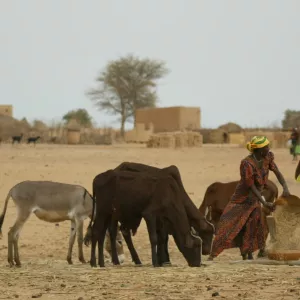Towards gender equality: A novel index to measure the empowerment of women in livestock keeping households
Rural women make up the majority of the world’s 600 million poor livestock keepers, and tend to do most of the day-to-day farm animal management, including the processing, marketing and selling of animal produce in some contexts. The meat, milk and eggs from their livestock are key sources of nutrition for their families, especially when they are pregnant and for

Towards gender equality: A novel index to measure the empowerment of women in livestock keeping households
Rural women make up the majority of the world’s 600 million poor livestock keepers, and tend to do most of the day-to-day farm animal management, including the processing, marketing and selling of animal produce in some contexts.
The meat, milk and eggs from their livestock are key sources of nutrition for their families, especially when they are pregnant and for their growing children.
In many low- and middle-income country settings, women find it easier to own and control some livestock species, such as small ruminants and poultry, than other assets, such as land or buildings.
By providing food on a daily basis, livestock also help women with their traditional task of feeding their families and offer an opportunity for regular cash income.
Such income can be invested in larger flocks or more valuable species, allowing women to accumulate livestock under their control and slowly build their asset base.
Thus, livestock-keeping serves as an important entry point for supporting the empowerment of women.
Many international development programs aim to help poor livestock keepers to boost their productivity and profitability.
But when these programs are gender-blind, they can inadvertently result in women losing control over the very assets and products that are traditionally under their domain, as men often take ownership as soon as the livestock start providing a significant income.
The Women’s Empowerment Livestock Index (WELI), which is designed to be applied in context where livestock is the dominant agricultural activity or where livestock interventions are the target. The WELI facilitates qualitative and quantitative assessments of the impact of livestock interventions on the empowerment of women involved in the sector.
Photo credit: Village women and livestock in Niger (ILRI/Stevie Mann).

